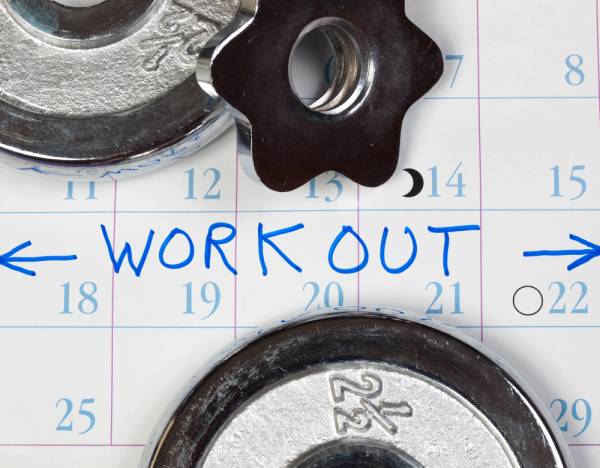If you want to stop your strength gains right in their tracks, there are plenty of ways you can do so. Tried and tested by countless athletes worldwide, these are sure-fire ways to halt your progress, or maybe even send you backwards. If you’re lucky, you’ll experience burn out in the process.
But wait, I hear you. You’re special. You’re different than the rest. You have better powers of recovery from workouts and you don’t need as much sleep, but your training is stuck and you need to find something particularly special to get it going again.
I have just the ticket for you. Here are my ten top tips on how to plateau, burn out, and avoid getting strong:
1. Thinking that this article is not for you.
You don’t want to learn from my mistakes, and the mistakes of many, many athletes I have witnessed, despite advice to the contrary from myself and others? Cool, you’d better get back to reading what everyone else is up to on Facebook then.
2. Having conflicting goals.
You have a set of goals that excites you. This is good. But do your goals match up with one another? You’re training for a marathon, but you want to get big and strong. You want to gain strength progressively and steadily this year, but have booked a competition every few weeks. You want to improve your weightlifting, powerlifting, and strongman all at once. You want to get super strong and improve your conditioning. There’s nothing stopping you doing any of these. But do them at the same time and you will end up stopping yourself.
3. Thinking that more strength is always the answer.
Yes, you read that right. More strength is not always the answer. If you are working at 50% of your strength capacity due to sub-optimal technique, bad recovery, mobility issues, or anything else, then you are leaving performance and progress on the table, to say the least. Find out how to utilize the strength that you have better. Believe me, it’s a whole heap more effective than busting your balls to gain a smidgen more strength.
4. Using fancy loading protocols too soon.
Yes, they are cool. Yes, they work. No, you don’t need to do them to advance your squat, pull ups, or whatever. Take a long hard look at yourself. Have you honestly maxed out on your linear progression? Or did you just have a couple of sessions where you weren’t progressing, decided that you had stalled, and that you needed a Russian program to get you going again. Are you genuinely such an advanced lifter? Let’s be honest. None of us are as advanced as we think. Get with the program by getting off the programs.
If you are at the stage where you do need an advanced protocol, and they have helped you in the past, do not jump straight into another program and expect the same progress. In fact, don’t even expect to stay on the level. This is strength suicide, and is asking for trouble. These programs are not designed to be a mainstay or base of your schedule. Back to back will break your back. My rule of thumb: Leave at least the time of the program you have just done before you even look at another one. For example, you have done a twelve-week protocol. Wait at least twelve weeks before starting another.
5. Working things you hate all the time.
 In particular, I know a lot of CrossFitters who do this. (They call it training their “goat.”) I admire the determination and respect the principle. The things you hate are often the things you are worst at. The things you are worst at are likely your weaknesses. And working your weaknesses tirelessly will no doubt get you better at them, which will raise your overall game. However, time and again, I have seen people go after weaknesses with everything they have, in every spare minute, only to end up hating them even more, getting burnt out and hating the game.
In particular, I know a lot of CrossFitters who do this. (They call it training their “goat.”) I admire the determination and respect the principle. The things you hate are often the things you are worst at. The things you are worst at are likely your weaknesses. And working your weaknesses tirelessly will no doubt get you better at them, which will raise your overall game. However, time and again, I have seen people go after weaknesses with everything they have, in every spare minute, only to end up hating them even more, getting burnt out and hating the game.
Here’s my take on it: You have to enjoy the process. If it mostly involves doing things you don’t like, even if this is doing wonders for your strength or fitness, you will end up resenting some part of it. This leads disillusionment at best. And to burn out at worst.
6. Obsessing over…anything.
Why are you sweating your macros, the minutiae of your supplement stack, the guy that’s wrong on the Internet, your mate who is lifting more than you, or whether it’s better to wear this shoe or that shoe. Get on with it. Test out your theories. Prove the guy on the Internet wrong. Beat your mate.
These things will either work themselves out, or you will work them out. Either way, two weeks of getting on with it in the gym beats two months of perfect planning. (That’s not to say you shouldn’t record stuff you actually do in the gym. Record everything you do, with notes too.)
7. Treating training as separate to life.
Yes, life does get in the way of training far too often. But that is just the thing – training is not separate to life. Children, families, holidays, and weddings are all important life enjoyments and detours on the strength journey. Less fun are the stresses and pressures of everyday life (some of which are caused by the same “enjoyments” as above). Don’t think that once you are in the gym, these things are insignificant. They affect you more than you realize.
Don’t get tied up in the ups and downs of each training session. Not every session is going to be a record-breaking, personal best smashing, mood boosting session. Sometimes it’s just about turning up and doing the work. Actually, make that most of the time.
8. Not taking deload weeks.
But it’s going so well! All the more reason to deload, so you can continue to improve. But it’s max out day/hero week/my favorite mess-you-up workout this week! Are you kidding me? You want to not take a deload you so can f*** yourself up even more? If you really wanted to train hard this week, you should have planned your training better.
9. Training countless days in a row.
 Show me someone who trains almost every single day, and I’ll show you someone who thinks this behavior is cool, that they are “hardcore,” and that they know it’s bad for them but they do it anyway. (Sounds a lot like smoking to me.) They do this despite everyone around them advising otherwise. In fact, when someone advises them that not resting is a bad idea, it’s another chance to show how they don’t need to rest. (If you don’t rest, this is part of the reason you do it. Admit it and let down your guard.)
Show me someone who trains almost every single day, and I’ll show you someone who thinks this behavior is cool, that they are “hardcore,” and that they know it’s bad for them but they do it anyway. (Sounds a lot like smoking to me.) They do this despite everyone around them advising otherwise. In fact, when someone advises them that not resting is a bad idea, it’s another chance to show how they don’t need to rest. (If you don’t rest, this is part of the reason you do it. Admit it and let down your guard.)
Let me present you with a scenario. You’re in the gym yet again, but not quite feeling yourself. Sound familiar? Don’t get this mixed up with not hitting personal bests every session. Yes, sometimes it’s about just turning up and getting the work done, even if it sucks a little, but there comes a point when it sucks a lot and more to the point, feeling this way can be avoided. If you are experiencing a lot of these “sucks a lot” sessions, you need to either take a deload or cut down the amount you train – or both.
How do you know it sucks a lot? You can’t nail that technique despite trying for ages. Your weights or times are not getting any better. You have to scale workouts or lower the weights more than you should need to. The intensity just isn’t there. Take heed of the signs and add in some rest days. I mean proper ones. I promise you will feel and perform better.
10. Being stubborn about everything.
Some things change, and some things stay the same. The stuff we do falls on both sides. Definitely be stubborn in your work ethic, in making sure you take adequate in resting, and in chasing your goals. But there’s no need to be stubborn about everything. Be open to change, to life getting the better of you, to ways of improving the things you currently do – and to working out how to continue being stubborn for years to come.
Photos courtesy of Shutterstock.






